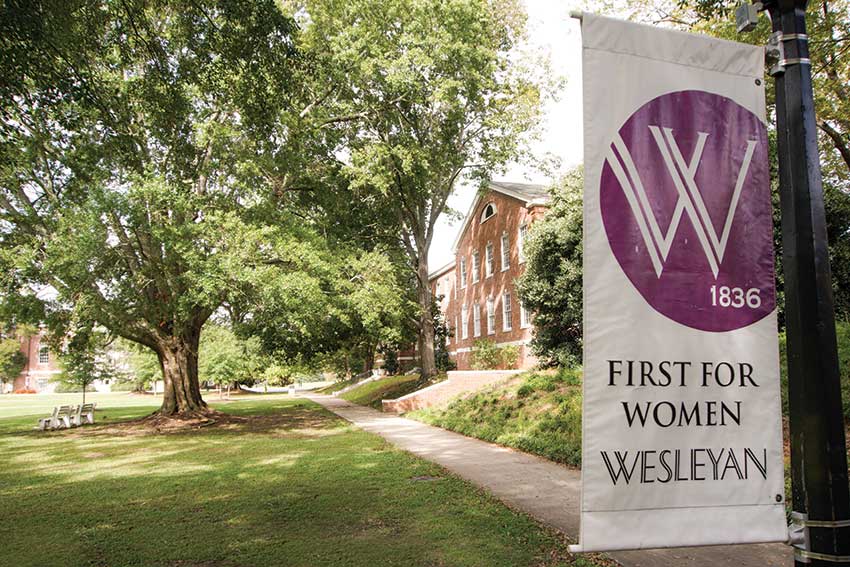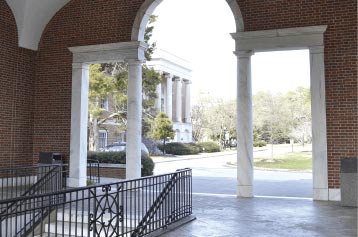New technologies and ideas have contributed to making the biological sciences one of the most explosive areas of modern intellectual pursuit. The study of biology is rich in history and our modern understanding of the living world is predicated on centuries of observations, analysis, debate, and reassessment and reinterpretation of previous discoveries. The biology program challenges students to explore the living world and to use the study of biology as a means to develop their full cognitive potential. The program embraces the philosophy that to understand science, a student must participate actively in the scientific process. Understanding and engaging in the scientific method within the context of the life sciences prepares students to succeed in graduate study in an area of specialization, pursue additional education in professional schools, engage in a technical career, or work as a science educator. Students may choose courses best suited to meet their professional goals within the larger structure of a curriculum designed to insure breadth of experience.
Major Program. The biology program balances instruction in "content" and "process" with active participation on the part of all students in research projects throughout their undergraduate careers. This research-driven curriculum has at its base an initial three course sequence comprising two semesters of introductory biology followed by a semester of scientific methodology and experimental design. The first course, "Principles of Biology I: Biological Processes," provides a solid foundation in the study, scope, and processes of biology, including basic biochemistry, cell biology, genetics, ecology, evolution, and population biology. The second course, "Principles of Biology II: Diversity of Biological Systems," applies a comparative approach to understanding the evolutionary basis for biological classification of organisms, continuity and diversity in the various kingdoms of life, and the central features of plant and animal physiology. The third course, "Research Methods in the Biological Sciences," immerses the student in the actual practice of science. In this course, students actively practice the scientific method by observing natural phenomena, asking questions, formulating alternative hypotheses, designing and instrumenting controlled experiments to test their hypotheses, carrying out these experiments by collecting and analyzing data, drawing conclusions from their experimental results, presenting their findings in written and oral forms, defending their procedures and results, and critically evaluating the work of others.
Nearly all upper-level coursework in biology draws upon this platform of practical experience and knowledge by requiring students to design and carry out experimental extensions of their laboratory exercises. Upper-level courses provide a deep background at the organismal, population, and integrative levels. Most students choose to participate in collaborative research with faculty members during their college careers. Due to the highly integrative nature of modern biology, coursework in chemistry, physics, and mathematics is also required. A capstone experience is provided by the Senior Integrative Exercise in Biology, in which the student integrates her knowledge of biology and other academic disciplines to research and present a focused interdisciplinary topic in an open forum.
The goals of this curriculum are to graduate biology majors who can demonstrate a rich understanding of the current content and subject area of the biological sciences, who can apply a firm foundation of practical experience with the scientific method to actual research projects, and who can present themselves and their work in professional settings.
Department faculty can be contacted to help with initial course selection and the development of a long-range plan for course sequencing. Aspirants to medical, dental, allied health and veterinary schools must satisfy the specific entry requirements for those schools. Biology majors contemplating a career in Allied Health (e.g., Nursing, Physician's Assistant, Medical Technologist, Physical Therapist) should complete both BIO 210 and BIO 211 in order to meet professional school requirements for a two-semester sequence in Human Anatomy and Physiology.
Major Requirements for Biology. A major in biology requires a minimum of 60 semester hours, including the following:
37 semester hours of Biology, including at least three 300-level Biology courses
Five student learning outcomes have been identified for the required courses in the Biology major:
Integrative Experience: The integrative experience requirement is met with BIO 440 Senior Integrative Exercise in Biology. In this course, students work individually to research a focused topic integrating biological concepts and methods with those of another discipline. Students work collaboratively in a small group to organize oral presentations which integrate individual topics into a broader theme, question, or problem. Students present their work at the end of the semester.
Professional Development in Biology: Throughout her Wesleyan education each student is given opportunities to explore professional and career choices, and to develop and demonstrate the knowledge and skills essential for professional success. Each student will complete PDE 400 Professional Development Experience and PDE 401 Professional Practice Seminar.
The biology professional experience requirement can be met by involvement in any of the following biology related activities: internship, independent study, assisting a faculty member with the instruction of a regular teaching laboratory (teaching assistant), working with a faculty member as part of a laboratory or field research project. With faculty approval, these activities may also be used to fulfill the general education requirement that each student, "must develop her understanding of how a liberal arts education enhances students' preparation for careers and further professional growth" (general education learning objective #7). Registration for and completion of at least 1 credit hour of PDE 400, Professional Development Experience, is required to fulfill this aspect of the general education requirement.
Biology majors contemplating a career in Allied Health (e.g., Nursing, Physician's Assistant, Medical Technologist, Physical Therapist) should complete both BIO 210 and BIO 211 in order to meet professional school requirements for a two-semester sequence in Human Anatomy and Physiology.
Course Sequencing for the Biology Major. For optimal progress, students considering a major in biology should begin with BIO 110 in the fall semester and BIO 112 in the spring semester of their first year. BIO 203 should be taken in the fall of the sophomore year. Students with some high school chemistry are strongly encouraged to take CHM 101 and 102 in their first year and CHM 221, 222 in their sophomore year. Physics is normally taken in the second or third year. A recommended sequence of courses for the student majoring in biology is shown below.
Minor Requirements: Biology. The biology minor consists of a minimum of six courses within the discipline, for a total of 22 semester hours. These six courses will include BIO 110, 112, and 203, plus any three regularly-offered 200-300 level courses.
Resources for Non-Majors. Principles of Biology I (BIO 110) and Human Biology (BIO 103) are designed to fulfill the General Education learning outcomes for exploring how the natural world functions. Research Methods (BIO 203) is designed to fulfill the General Education learning outcomes for the Speaking Competency. Principles of Biology I (in addition to Principles of Biology II) also provides the necessary background for advancement to additional coursework within the biology major, biology minor, environmental science minor, and neuroscience minor programs. Human Biology (BIO 103) does not directly fulfill any course requirements of the biology major or minor. Non-majors can elect to take additional coursework in biology within the prerequisite structure. Prerequisites can, in some cases, be waived with the consent of the instructor and program director. Students contemplating a career in Allied Health (e.g., Nursing, Physician's Assistant, Medical Technologist, Physical Therapist) should complete both BIO 210 and 211 in order to meet professional school requirements for a two-semester sequence in Human Anatomy and Physiology.
Undergraduate Research Opportunities. All biology majors are exposed to the research environment of science in their sophomore year in the required course BIO 203. This experience is furthered by research components in many of the upper-level courses for which BIO 203 serves as a prerequisite. Independent laboratory or field research experience is strongly encouraged as a means to gain further knowledge of how science is conducted and as a prelude to post-graduate study in both research and clinically-based programs. Faculty members welcome the opportunity to support and direct the research efforts of students enrolled in BIO 155, 451, 452, and 499 and to have students participate as research assistants in ongoing faculty research programs. Also, students are welcome to participate in the College intern program and receive academic credit for participation in research conducted at other institutions.


Wesleyan College is privileged to steward many arts and cultural events and share them with the community. Most are free and open to the public. Wesleyan art galleries are open M-F 1-5PM and on Wesleyan Market Saturdays from 10AM-2PM.
Event listing
Tour our beautiful 200-acre campus featuring Georgian architecture, lush green spaces, recreational facilities, residence halls, and worship center.
Vist Wesleyan Virtually
Wesleyan College is home to five NCAA Division III sports: soccer, basketball, volleyball, tennis, and softball. In addition, we offer an award-winning Intercollegiate Horse Show Association (IHSA) Equestrian program.
View More